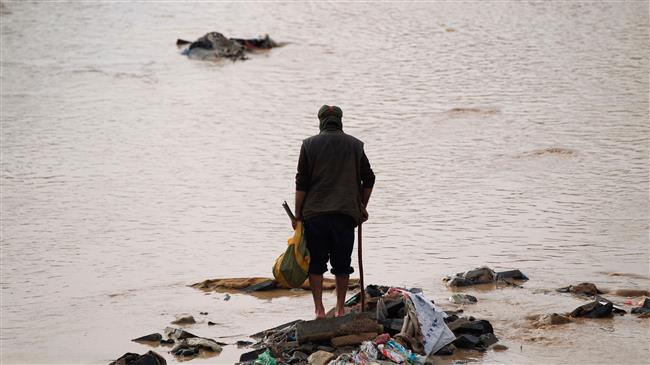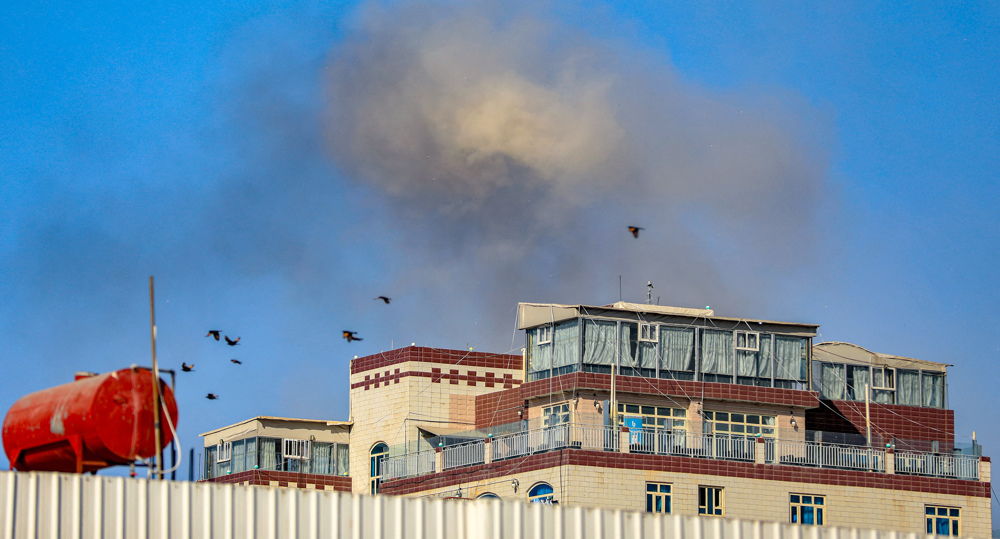One million Yemenis risk losing shelter due to lack of funds: UN
The United Nations refugee agency says nearly one million displaced people in Yemen risk losing their shelter due to torrential rains and seasonal floods, warning about a dire lack of funding at a time when the county is already threatened by the new coronavirus pandemic.
The United Nations High Commissioner for Refugees (UNHCR) said on Tuesday that some $89.4 million is urgently needed in the coming weeks to keep life-saving aid programs running in Yemen and raised the alarm that the funding shortfall threatens critical aid for nearly one million displaced Yemenis and refugees.
"Yemen is already considered to be the world's largest humanitarian crisis," UNHCR spokeswoman ShabiaMantoo told a virtual press briefing in Geneva.
"The country is now also facing the overlapping threat of the coronavirus pandemic, and the impact of recent torrential rain and flooding," she added.
Mantoo underlined that more than 100,000 people across Yemen have been affected according to initial reports on the floods.
The UNHCR spokeswoman said the relief aid has become "urgent" as the people it would be directed to are also the "most vulnerable" to the coronavirus.
"For many refugees and displaced families, this is a matter of life and death," Mantoo said."After five years of conflict, more than 80 percent of Yemen's total population requires some form of assistance.”
Yemen recorded its first case of the new coronavirus on April 10.
The start of the rainy season has already brought misery to thousands of Yemenis. Sana’a, Hajjah and the southern port city of Aden experienced torrential rainfall and deadly floods over two weeks, affecting thousands of people and partially destroying houses and businesses.
Yemen has been under brutal military aggression from Saudi Arabia and a number of its regional and foreign allies over the past five years.
The Saudi-led coalition claimed on April 8 that it was halting military operations in Yemen in support of UN efforts to end its five-year war, which has killed tens of thousands and spread hunger and disease.
However, shortly after the announcement, the coalition’s warplanes struck positions at several Yemeni regions, including Sa’ada, Amran, and al-Bayda, according to Yemen’s al-Masirah TV.
Saudi Arabia and a number of its regional allies launched the devastating war on Yemen in March 2015 in order to bring former president, AbdRabbuh Mansur Hadi, back to power and crush the Houthi Ansarullah movement.
The US-based Armed Conflict Location and Event Data Project (ACLED), a nonprofit conflict-research organization, estimates that the war has claimed more than 100,000 lives over the past five years.
Saudi Arabia and the United Arab Emirates have purchased billions of dollars' worth of weapons from the United States, France and the United Kingdom in their war on Yemen.
Riyadh and its allies have been widely criticized for the high civilian death toll resulted from their bombing campaign in Yemen.
The UN says over 24 million Yemenis are in dire need of humanitarian aid, including 10 million suffering from extreme levels of hunger.
VIDEO | Brutal murder of journalist in India prompts calls for justice
VIDEO | Iran unveils new AI drone in Great Prophet 19 military drills
110,000 Basij forces display defense capabilities in Tehran parade
VIDEO | Joseph Aoun elected as president of Lebanon
New anti-ballistic missile system to join IRGC air defenses soon
Trump says ‘setting up’ meeting with Putin over Ukraine war
At least 10,400 Palestinians held in Israeli prisons: Report
US House passes ICC sanctions bill to protect Israeli war criminals












 This makes it easy to access the Press TV website
This makes it easy to access the Press TV website